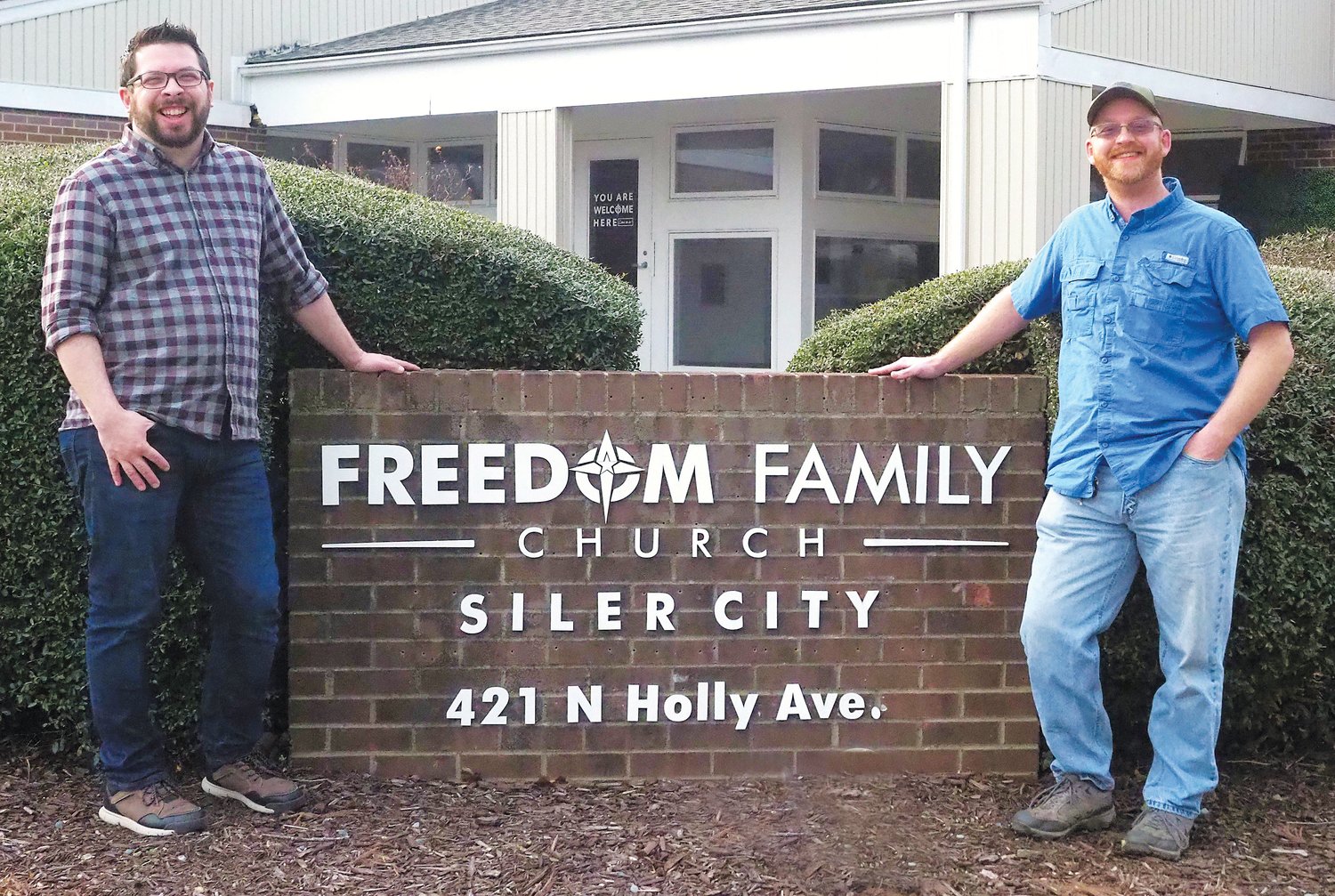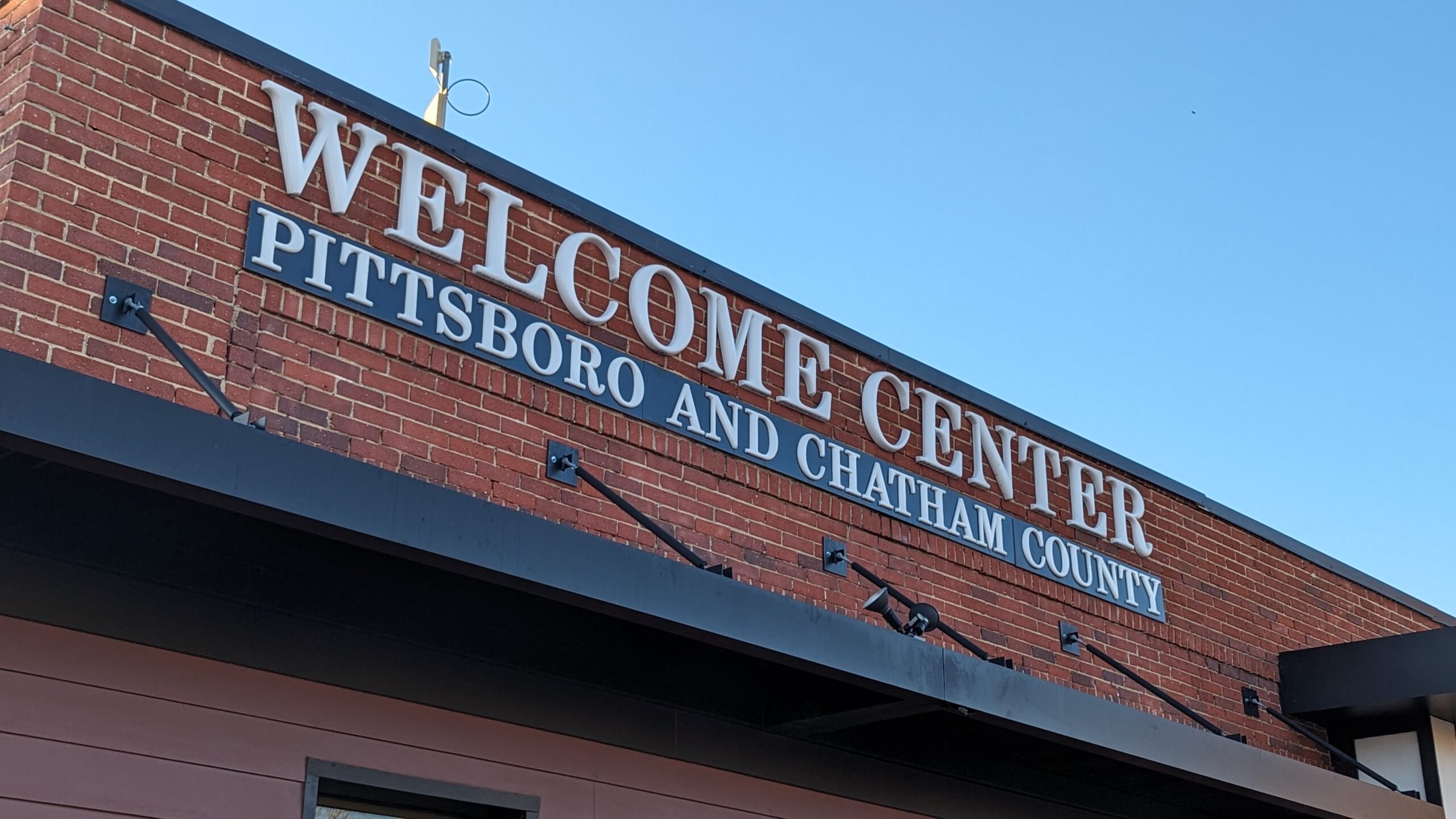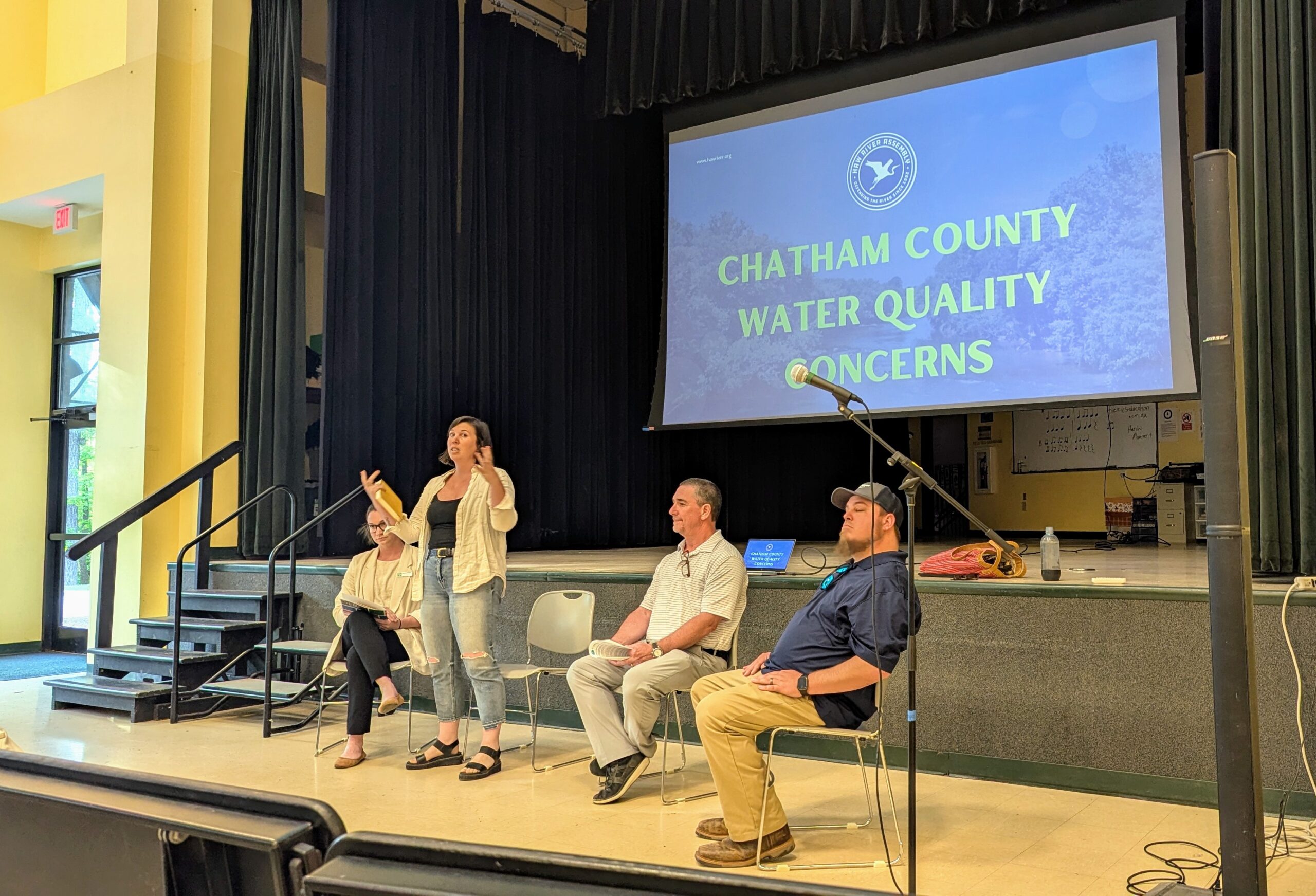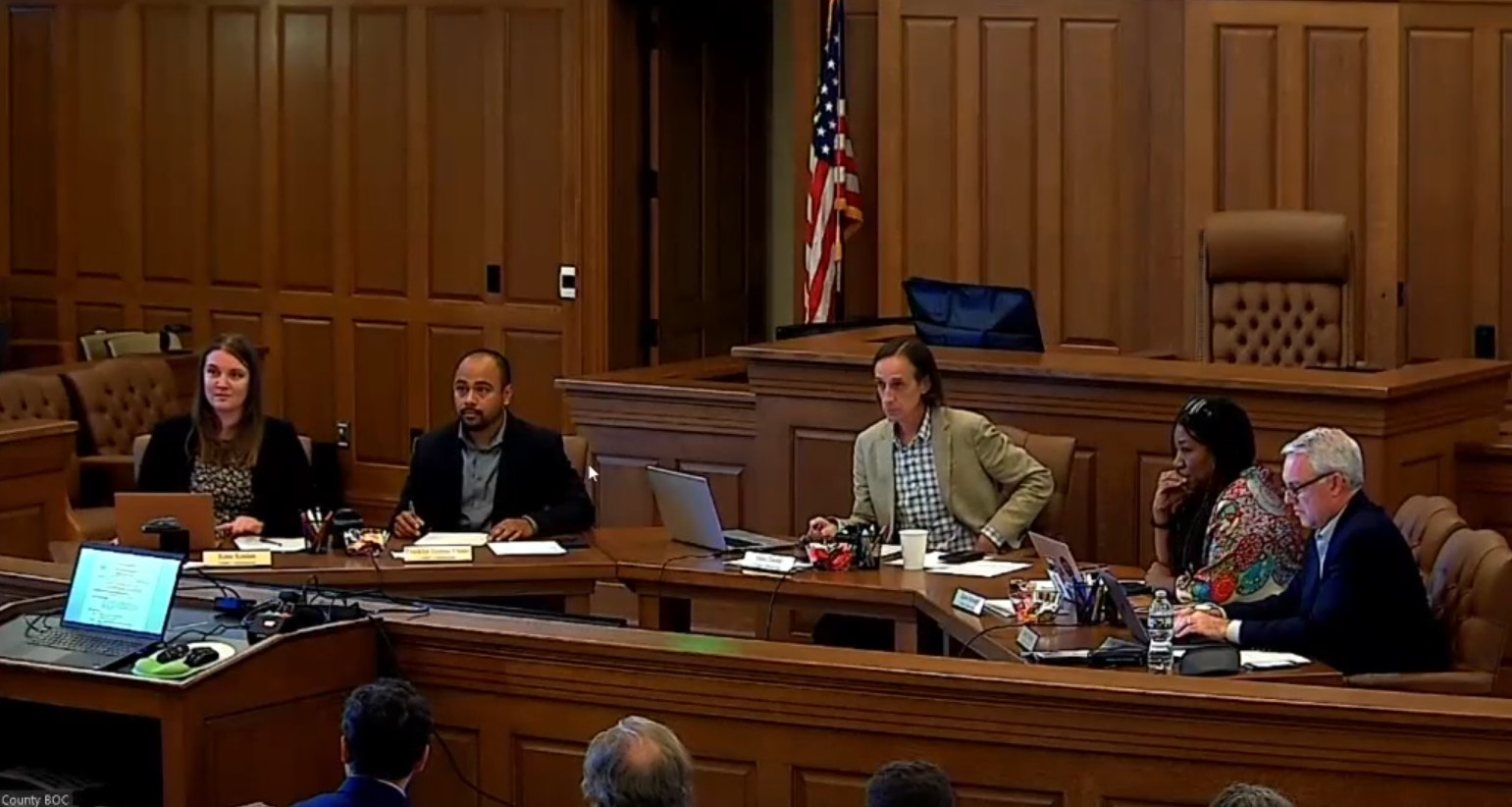![]()
By Victoria Johnson , Chatham News + Record Staff
A little over a year after its formation, Chatham’s lone homelessness-centric organization, Love Chatham, is gearing up to launch its next big project: an emergency housing initiative offering temporary shelter to those in need.
Since they don’t yet have a permanent facility, the initiative would house people temporarily inside participating churches and other facilities on a rotating basis, according to Love Chatham founding member Ben Suggs.
“We are looking at, you know, me being willing to put my church as the guinea pig sort of in short bursts and figuring out what all [a] church would need to do and what all the program would have to have to safely be able to house a certain number of people who need help and have no other option,” said Suggs, who pastors Freedom Family Church in Siler City.
With luck, they’ll launch the program within the next few months.
“We know that we may have to adjust some of it,” Suggs said, “but … I think we’re shooting for the spring.”
Formally known as Chatham County NC Homeless Shelters, Love Chatham is a faith-based nonprofit bringing together churches, businesses and community members to combat homelessness and serve those less fortunate in the Chatham community. Since its formation in early 2021, the organization has worked with various community nonprofits and volunteers to distribute free food, offer free clothing and finance temporary hotel stays for individuals and families in need.
On top of all that, Love Chatham began to work toward creating a temporary housing program in 2021, with plans to launch it by the end of the year. According to Executive Director Dakota Philbrick, they’ve already written the program guidelines and even have several willing participants among their network of churches, but several factors have pushed back the program’s full-blown launch.
First, they have to finish up a mobile hygiene trailer for participating churches and other facilities without showers.
“They can give the room, but they don’t necessarily have access to that facility [showers],” said Philbrick, who became Love Chatham’s executive director in November. “So, our organization has purchased an emergency hygiene trailer, and it’s near completion, but it’s going to require a little bit more work.”

Love Chatham’s executive director, Dakota Philbrick (right), stands outside Freedom Family Church in Siler City with the church’s pastor, Ben Suggs, who’s also a founding member of Love Chatham. (Photo via the Chatham News + Record.)
Suggs and Philbrick predict that the hygiene trailer should be done within a month. They’ve received the necessary supplies and now have a working design despite a few early hiccups.
“It’s something that we were having to design, and they were not just considerations for functionality, but also safety, and the weight distribution of the trailer,” Philbrick said. “There were some other things that we had to be concerned with. But as we peel back the onion, so to speak, each layer, we see a new layer that we have to kind of consider, so it’s a little bit tougher than we thought.”
Other considerations have also stayed the program’s launch. Beyond finishing the hygiene trailer, they’ve got to figure out transportation to and from participating churches, as well as how to run the program overnight.
“We got a couple people that have verbally said, ‘Oh, you can use our church van,’” Suggs said, “so we’re gonna have to call them to the mat and say, ‘All right, well, I need it from this time to this time.’”
Participating churches and facilities have expressed concerns about overnight safety, he added, so Love Chatham would likely need to provide paid or volunteer staff to stay overnight at participating churches to protect the facilities and attend to guests’ needs or concerns. That way, a participating church’s leadership or staff wouldn’t need to stay themselves.
“[We’re] trying to take away all the potential obstacles for use of people’s buildings to make it as feasible as possible for any church to [participate],” Suggs said. “And the numbers may vary, you know. One church may be able to handle 20 people; one church might be able to only handle 10. It just depends on the situation, but we want to house as many as we can.”
So far, they’ve managed to take the program for a couple of test runs at Freedom Family Church, offering emergency shelter to a mother and her son in early 2021 as well as another individual just a few weeks ago. Both, Suggs said, had “an end in sight” and only required a temporary bridge to hold them over.
“There was a single mom and her son who were escaping some domestic abuse and didn’t really have a lot of options … and so we gave her a place to stay and had a couple of our people work with her to get some things in place to get the benefits that she needed,” Suggs said. “We ended up finding her an apartment, and it was a really great success story and happy ending for her.”
The idea behind the initiative isn’t anything new, Philbrick said.
“But it’s new to this area,” he added, “and the idea of doing it seems to be new to this area. This is actually a very common approach up north in the New York and Pennsylvania area.”
Other organizations across North Carolina also employ a similar approach, including, for instance, the Family Promise Program in neighboring Sanford and Room in the Inn program in Charlotte.
Since Chatham County doesn’t have a permanent homeless shelter, most nonprofits have been putting people up temporarily in hotels, Philbrick said — and that’s why Love Chatham seeks to bring the rotational housing model to the county.
“It is not a sustainable solution,” Philbrick said. “It’s too expensive to keep somebody in a hotel, and that should not be our fallback shelter for Siler City, period. … Chatham County needs to have a better, more permanent solution.”
Ideally, they’d like to offer temporary housing in addition to case management and other resource support to attack the root causes behind homelessness, Philbrick said, though that’s quite a ways off until they gather more community support and funding.
“We have to realize that the people that are experiencing homelessness may have other barriers,” he said. “ … On average, a person experiences up to four co-occurring issues at one time — physical health, mental health, traumatic experiences and some other challenges. So, unless we are aware of that, unless we start to address those issues, then even having affordable housing in place still doesn’t solve this.”
Things have been going slower than they’d like, Philbrick added, but that’s in part by design. They realize other organizations in the past have tried and failed to do something similar to their mission now, he said, and so, building up community trust is top priority — and so is maintaining that trust.
“We want to be very careful with our partners and stuff and make sure that everybody that’s involved knows that they’re not going to get left hanging out to dry, and that we’re here for the long haul,” Suggs said. “Especially with the history of a couple different homeless charities being up and down and flashes in the pan, I think people are already weary because of some stigma that comes with homelessness.”
One of the biggest needs Suggs sees right now, he said, is recruiting more churches and volunteers to spearhead the emergency housing initiative and “spread that temporary load.”
“We’re at a critical stage where it’s about trust, and the most important component that I can think of is the reciprocated relationship that we have with the community,” Philbrick said. “In order for us to support the community, the community has to support us. The more support we get from the community, the more we’re able to support the community, through volunteers, through financial donations, through clothing, donations, through furniture donations.”
Those looking to learn more or get involved with Love Chatham can visit chathamhomeless.org or call 919-726-9976. The organization holds a food pantry and clothing closet distribution every first and third Saturday of each month from 10 a.m. to 1 p.m. at Freedom Family Church in Siler City.
People may also attend Love Chatham’s monthly meetings held at 6:30 p.m. on the second Monday of the month. The meeting place often rotates between the nonprofit’s participating churches; the next meeting will take place at Plainfield Friends Church on Monday, March 14. Love Chatham also holds a meeting for volunteers at 6 p.m. every Tuesday after the Monday meetings inside Freedom Family Church.
“[Monday meetings are] a public forum for prayer, for conversation; it also gives the general community access to myself and the board, so it’s a way that we stay engaged with the community,” Philbrick said. “… The Tuesday meeting is more engaged with what our volunteers are up to.”
The nonprofit also welcomes monetary, food and clothing donations, as well as volunteers. People can give or sign up to volunteer by visiting Love Chatham’s website or social media.
“The goal is to be able to impact a life,” Philbrick said, adding: “This problem isn’t going away. … Unless we do something different in this community, we’re going to continue to see the problem and people are going to continue to suffer because of it. That’s not acceptable to me.”
Chapelboro.com has partnered with the Chatham News + Record in order to bring more Chatham-focused stories to our audience.
The Chatham News + Record is Chatham County’s source for local news and journalism. The Chatham News, established in 1924, and the Chatham Record, founded in 1878, have come together to better serve the Chatham community as the Chatham News + Record. Covering news, business, sports and more, the News + Record is working to strengthen community ties through compelling coverage of life in Chatham County.









